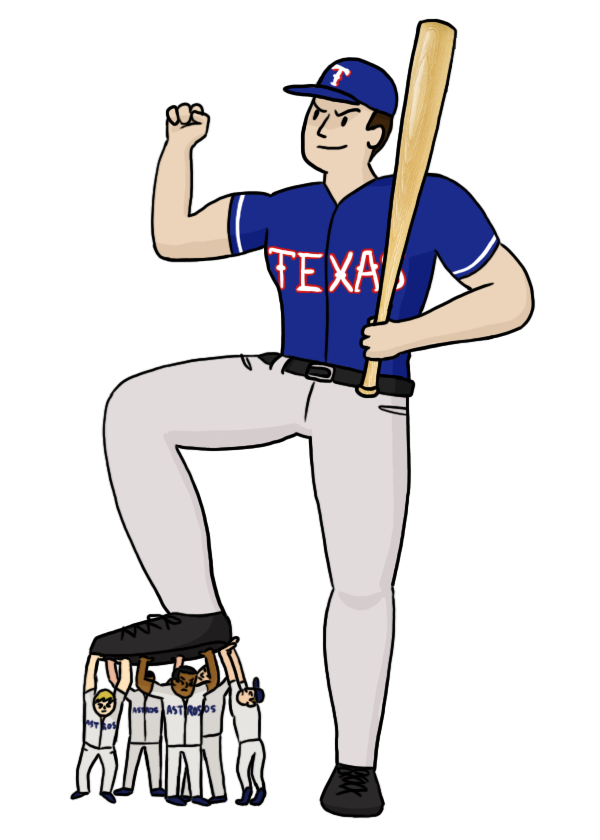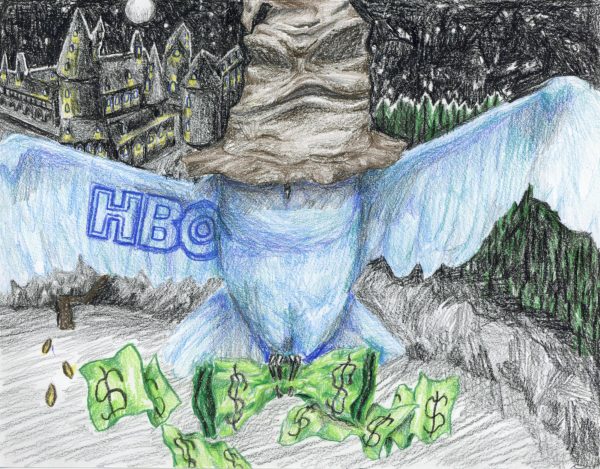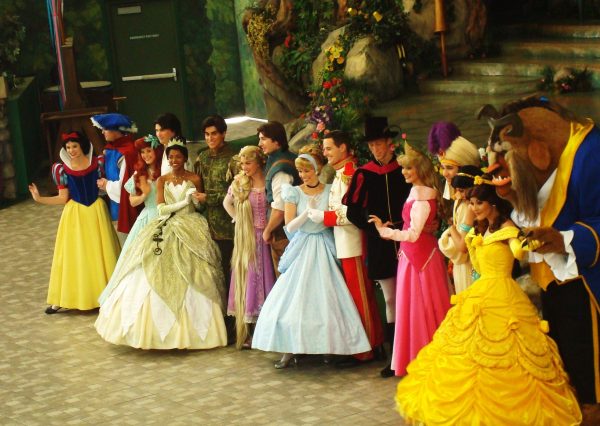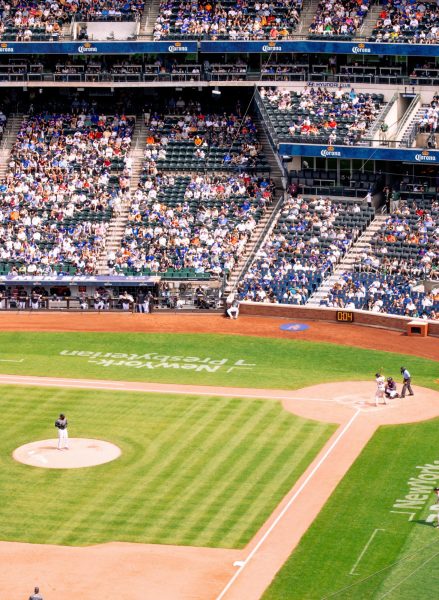The slow power shift of Major League Baseball in Texas
In 2011, when it was announced that the Houston Astros would be moving to the American League’s West division, the longtime home of the Texas Rangers, Major League Baseball’s ticket and marketing office staffers probably salivated. Finally, they must’ve thought, we’ll have an in-state, intra-league rivalry that actually packs a punch, easily overpowering the lackluster media hype that surrounds every meaningless inter-division Philadelphia Phillies-Pittsburgh Pirates series.
“What a narrative you can spin from this,” they must’ve thought. “Once the Astros and the Rangers are in the same division, you’ll have tight races that divide the state. There’ll be 18-20 games a year that both fanbases have access to. Stadiums will be filled night in, night out — half with Rangers blue and the other half with (then) Astros red. This will be the next Auburn-Alabama, but instead lasting all summer long and on a stage as grand as Texas. This is what baseball needs.”
Well … not quite yet anyway. One year into what many Astros fans probably wish the league would call The American League Experiment, the Rangers have faced little resistance in the now-divisional Lone Star Series. They went 17-2 against the hapless Astros in 2013, their wins against their new division rivals accounting for about 19 percent of their 91 wins on the season.
On paper, it’s almost comical. You have a seemingly contrived rivalry built between one team that has won exactly a third of its games since the start of 2011 (162-324) and another team that contends for the playoffs every year. But as the dawn of another baseball season creeps quietly over the dark, boring night of football and basketball (no apologies for the bias), it’s becoming clearer to the informed fan that the Rangers’ Texas Reign of Terror may be coming to an end. How so, you ask? Well first, let’s take a look at both teams’ outlooks for the upcoming season.
The Rangers, despite their winning ways, have fallen off a bit since their American League pennant-winning seasons of 2010 and 2011. 2013 was just a mirror image of 2012 — a year beginning with winning and optimism that the heartbreaking 2011 World Series loss would be avenged, but ending in “the doldrums” of September, as other teams got hot at the right time and took advantage of the Rangers’ inability to slam the door. In like a lion, out like a lamb, you might say. This offseason, general manager Jon Daniels traded high-caliber second baseman Ian Kinsler to Detroit for dangerous designated hitter Prince Fielder, and signed outfielder Shin-Soo Choo from Cincinnati. Both of these moves addressed offensive needs, but the Rangers failed to address the injury and/or inexperience question marks attached to all of their starting pitchers not named Yu Darvish. But nonetheless, the Rangers are still a very competitive team that will likely be in the thick of the AL West race with Oakland and (maybe) Anaheim come September. But anything less than a division title will be viewed as a failure, and the entire baseball world knows that Rangers manager Ron Washington is skating on very thin ice after underperforming these past couple seasons
There is no need to recap the garbage fire that was the Astros’ 2013 season. All that needs to be said is that the team lost its final 15 games, and is no doubt eager to end that streak as soon as possible starting April 1 against the New York Yankees. This off-season, general manager Jeff Luhnow went out and signed veteran relievers Matt Albers, Chad Qualls, Raul Valdes and Jesse Crain in an effort to shore up a bullpen that last season seemed to be, at best, forged on a foundation of soggy toilet paper. The Astros also brought in talented centerfielder Dexter Fowler from Colorado to add some punch to the top of a lineup that already consists of two All-Stars in second baseman Jose Altuve and catcher Jason Castro. There’s still a lot to be addressed, though. The rotation (other than off-season free agents and league average right handed arms Jerome Williams and newly-crowned ace Scott Feldman) is very young, every infielder besides Altuve is playing for his job and two players who both made their Major League debuts last year will most likely fill the corner outfield spots. It’s unreasonable to expect anything above 70 wins on the 162-game season, and even that would be considered a tremendous improvement and success for this rebuilding organization.
So, what gives? It seems like another year will go by with the Rangers running all over their in-state rivals while their fans stage a coup d’état of Minute Maid Park during the 10 “road” games they’ll play there. The teams will once again square off 19 times, and it’s not unreasonable to assume that the Rangers will win their fair share of those contests. But their window of dominance is closing, and it doesn’t take a biased Astros fan like myself to see that, just an educated baseball fan.
The Rangers are built to win now. Other than second baseman Jurickson Profar, DH Mitch Moreland and CF Leonys Martin, there is very little “homegrown talent” among position players. Did I mention a lack of pitching depth? The organization has laid all its cards on the table in the hopes that, one of these years, the team it runs out there will go track down that elusive World Series championship. But after two years of almost “wasted” seasons, it’s time for the Rangers and their fans to take a step back and ask themselves, are we going to be able to stay this good? History is not on their side.
Who remembers the 2011 Milwaukee Brewers? Seeking their first league title since 1982, they reeled off an impressive 96-win National League Central division championship season and charged into the playoffs with a star studded roster. But in the National League Championship Series, who did they run into? The St. Louis Cardinals, a proven winner loaded with players they had brought up through their own system. Nyjer Morgan, Corey Hart and Rickie Weeks were all playing well above their potential and quickly fell down to earth in subsequent seasons, and Prince Fielder and Zack Greinke both abandoned ship shortly after the NLCS loss. Before the Brewers could blink, they were stuck with a core of mediocre players who no longer had the “playoff spark.” After an 83-79 2012, the club sunk further to 74-88 in 2013. They signed corner infielders Aramis Ramirez and Mark Reynolds and closer Francisco Rodriguez along the way, but the writing’s on the wall. Those guys are well past their primes, and the Brewers are starting to feel what every team feels during the great cycle of baseball: mediocrity.
This is exactly what happened to the Astros after 2005, except it was handled even worse, and thus they find themselves in the hole they’re in today. And if the Rangers aren’t careful, someday in the nearer than foreseen future, they’ll find themselves in a sort of hole too. Sure, Choo, Fielder, outfielder Alex Rios and third baseman Adrian Beltre are solid players, but what happens when they can’t get it done like they used to? Well, no worries, they’ll still have Darvish, Profar and shortstop Elvis Andrus when that day comes, right? Well, no worries, the Brewers still have perennial All-Star outfielder Ryan Braun and proven ace Yovani Gallardo, right?
The Astros, despite their results (or lack thereof) at the Major League level, have what ESPN.com considers to be the best minor league system in baseball. Losing year after year has its benefits, namely two consecutive #1 draft picks, (and a third one on the way in June). The Astros are the media’s favorite “work in progress.” So what’s the big deal? Every team is technically a “work in progress.” Every team, however, is not the Astros. Listing every top prospect the Astros have waiting in the wings is tedious and, frankly, would bore the reader of this already exorbitantly long story. To put it bluntly, the Astros are in the process of building and developing a core of young talent for long-term success, and if that means sacrificing results in Minute Maid Park and a boatload of embarrassing losses at the hands of their check-writing rivals, so be it.
Every move the Astros make is just part of the puzzle. Fowler’s a good bat and glove, but he’ll make for excellent trade bait when the Astros are competitive enough to go after the big names to complement their experienced lineup. The same goes for Feldman and all the relievers they picked up this winter, and they’re well aware of it. They will all, at one point or another, be small pieces in a big trade that brings in the bigger pieces. But going after those big pieces rationally takes time, and unfortunately, (our little secret), Texas sports fans have very little patience. (See Minute Maid Park’s #26/30 ranking on average attendance per game last season.)
If you need further proof that a power shift is imminent, just ask Texas baseball legend Nolan Ryan. After what he had cemented himself in the Rangers front office for five years as CEO of baseball operations, he took his talents south to Houston, where he’ll be serving as special assistant to the owner. There’s that old adage about rats jumping off a sinking ship, and Ryan is in no way a rat, but it’s human nature to, given the option, want to work for a winner. You might still be confused – the Astros? They’re losers if they’re anything, right?
Are the Astros going to lose big for the next couple of years because they haven’t spent big on free agents? Probably. Honestly, it’s almost a miracle that they even won 51 last year with a league-low $14 million payroll. But, mark my words, the same Jeff Luhnow who built the wildly successful yet overwhelmingly youthful Cardinals team of recent years has taken the reigns in Houston and is leading them to the exact same place. The Rangers are a good ballclub and may very well continue to be one as the decade wears on. However, despite their almost equally deep farm system, they will pay the price for, well, paying the price, and the Astros will catch up to them. As Elton John once said, it’s the circle of life. It’s the wheel of fortune.
What goes around comes around, and someday in the near future, the dream of a competitive Texas baseball clash may be achieved. At the time being, there’s only room for one team in Texas to reign supreme, but the Astros are slowly making their way to the proverbial saloon. They’ll have something to say about that when the time comes.






